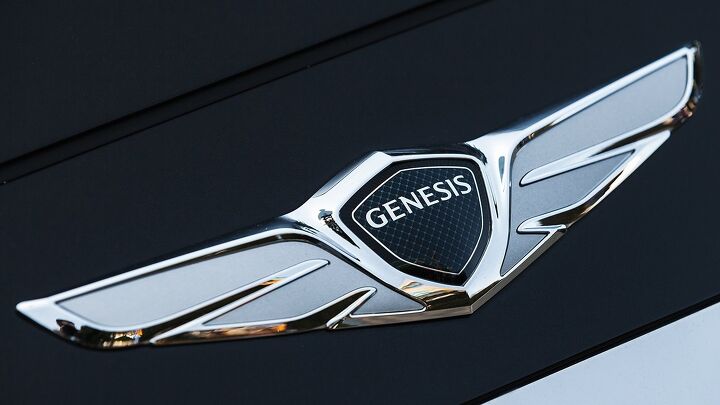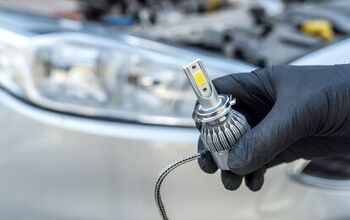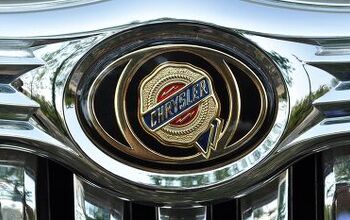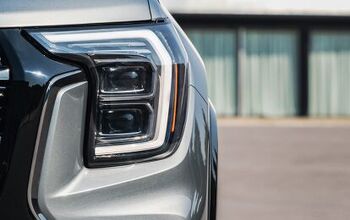What Does the Genesis Warranty Cover?
To learn more about our editorial integrity policy and how we make money through affiliate partnerships, read our full disclosure here.
Genesis, Hyundai Motor Company’s luxury vehicle division, offers competitive factory coverage and extended protection options. Genesis warranty plans are backed by Hyundai and guarantee the use of original parts and factory-trained technicians for repairs. But they’re not without their drawbacks.
In this review, we’ll take a closer look at the Genesis warranty coverage that comes with new and certified pre-owned vehicles and compare it to competitors. We’ll also dive into the extended Genesis warranty and how you may be able to get a more affordable, more comprehensive plan from one of the best extended car warranty providers on the market.
Table of contents
Genesis Warranty Overview
Here’s a snapshot of the Genesis warranty protection that comes included with all new Genesis vehicles:
Genesis Warranty |
Length of Coverage |
Type of Coverage |
|---|---|---|
Comprehensive Limited Warranty |
5 years/60,000 miles |
Bumper-to-bumper warranty that covers all major systems, including high-tech electronic systems |
Powertrain Warranty |
5 years/60,000 miles |
Covers parts that deliver energy from the engine to the wheels, including the engine, transmission, and drive axles |
Anti-Perforation Warranty |
5 years/unlimited miles |
Covers sheet metal panels if they rust through |
Replacement Parts |
1 year/12,000 miles |
Covers genuine Genesis replacement parts installed by a Genesis dealership |
Accessories |
1 year/unlimited miles |
Covers factory-installed genuine Genesis or Hyundai accessories |
Paint |
3 years/36,000 miles |
Covers paint defects |
Battery |
3 years/36,000 miles |
Covers battery defects |
Audio/Navigation/ Bluetooth Protection |
5 years/60,000 miles |
Covers the audio, Bluetooth, and navigation systems |
Adjustments Coverage |
1 year/12,000 miles |
Covers the cost of minor adjustments that your car needs for the first year you own it |
Air Conditioner Refrigerant Charge |
1 year/unlimited miles |
Covers one air conditioner refrigerant change |
The Genesis warranty is impressively lengthy and quite comprehensive, but no warranty covers everything. Genesis warranties come with a list of standard manufacturer warranty exclusions:
- Normal wear-and-tear items such as brake pads, glass parts, and spark plugs
- Damage due to modifications, abuse, misuse, neglect, and improper maintenance
- Damage due to a collision, theft, vandalism, chemicals, extreme weather conditions, or other environmental factors
Almost all Genesis warranty coverage is transferable to a subsequent vehicle owner, but the powertrain warranty is not. Instead, if you sell your vehicle before this coverage period ends, the next owner will have powertrain parts covered under the remainder of the New Vehicle Limited Warranty.
Genesis Warranty Perks
These additional benefits are included with the Genesis warranty:
Genesis Warranty Perk |
Length of Coverage |
Type of Coverage |
|---|---|---|
Roadside assistance |
5 years/unlimited miles |
Provides services including flat tire changes, battery jump-starts, and lockout assistance |
Trip interruption service |
5 years/unlimited miles |
Reimburses meals and lodging up to a certain dollar amount if your car breaks down over 150 miles from your home |
Complimentary scheduled service |
3 years/36,000 miles |
Covers the cost of maintenance items like oil changes, filter replacements, and tire rotations |
Valet service |
3 years/36,000 miles |
Your vehicle will be picked up and dropped off from your home or another convenient location if it needs repairs, and a loaner car will be left with you to use as alternative transportation while your car is in the shop |
Genesis Warranty for CPO Vehicles
CPO Genesis vehicles come with a Limited Warranty that protects the car for 6 years/75,000 miles and the remainder of the 10-year/100,000-mile powertrain warranty. To qualify as a CPO Genesis, each vehicle must pass a 191-point inspection, so there is much reason to believe your CPO Genesis is reliable.
However, even the most reliable vehicles are susceptible to unexpected breakdowns. In this case, a Genesis extended warranty might be the answer to long-term peace of mind on the road. With extra coverage, you’ll know your finances are protected against expensive repair costs in the event of a breakdown.
Do You Need an Extended Genesis Warranty?
If you’re wondering whether you should buy an extended warranty for your Genesis, we recommend looking into your vehicle’s reliability. Although no vehicle is immune to mechanical and electrical issues, the more reliable your vehicle is, the less likely it is you will need extended car warranty protection.
To determine the reliability of a Genesis, our automotive research team turns to RepairPal, an online vehicle repair cost estimation service that releases annual reliability ratings for 32 car brands. These ratings are primarily calculated based on how each of the brands ranks in the following competition categories:
- Average annual repair cost
- Number of trips to the repair shop per year
- Likelihood a repair will be severe
Overall, Genesis earned a 3.5 out of a possible 5.0 reliability score from RepairPal, placing the brand in seventh out of 30 luxury full-size cars tested. Here’s how Genesis scored in each of RepairPal’s rating categories compared to the average across all luxury and standard car brands:
Genesis Average |
Luxury Full-Size Car Average |
Standard Vehicle Average |
|
|---|---|---|---|
Average Annual Repair Cost |
$565 |
$976 |
$652 |
Frequency of Trips to the Repair Shop |
0.6 trips per year |
0.8 trips per year |
0.4 trips per year |
Likelihood of Severe Repairs |
14 percent |
14 percent |
12 percent |
Genesis repair costs are low but, the likelihood of a repair being severe is high. Genesis owners also tend to report taking less than the average number of trips to the repair shop per year. Based on these stats, an extended Genesis warranty could be right for drivers who would rather not pay frequent major repair costs out of pocket.
Factory-Backed Extended Genesis Warranty
- Coverage for about 1,500 components
- Roadside assistance
- Rental car reimbursement up to $35 per day for a maximum of 10 days
- Payments can be rolled into your auto loan
All repairs must be conducted at a licensed dealership under the extended Genesis warranty.
Benefits of a Third-Party Provider
- Customers can have car repairs completed at a wide range of licensed repair facilities or at a dealership.
- Plans are more comprehensive and customizable than manufacturer-backed warranties.
- Prices tend to be more affordable and more likely to be negotiable.
The biggest drawback to a vehicle service contract from a third-party provider is that finding a reputable provider can take some research. Luckily, we’ve done the homework for you.
Our review team has researched every major auto warranty company, analyzing plans, costs, reputations, and more to determine the best providers on the market today. Based on our findings, we recommend drivers look into coverage from Endurance and CARCHEX.
Click below to start comparing free, personalized Genesis warranty quotes from each provider.
Methodology
- Price: Comparing providers can be difficult due to the many factors that influence cost. To determine this score, we employ a secret shopper analysis using different vehicles, mileages, warranty plans, and locations.
- Coverage: A wide variety of coverage is essential to support the differing needs of customers. We take into account the number of extended car warranty plans available, term limits, exclusions, and additional benefits.
- Customer Service: The level of customer service and care provided by an extended warranty company is an important consideration. Our review team sifts through customer reviews and complaints from reputable sources such as the Better Business Bureau (BBB) and Trustpilot. We also consider the responsiveness of each company’s customer service team based on our secret shopper analysis.
- Reputation: Good extended warranty providers consistently provide quality experiences. Our team takes into account BBB ratings and the company’s history of reliable service when giving this score.
- Transparency: Customers value a commitment to open and honest communication when it comes to vehicle service contracts. Our team of experts takes into account the availability of money-back guarantees and sample contracts.
Stephen Kenney is a writer and editor who focuses on car insurance, auto financing, and vehicle shipping services. He's a graduate of UNC-Chapel Hill and has experience covering categories ranging from travel to sports to environmental sustainability. In his free time, Stephen enjoys going on long-distance runs, trying out new recipes, and exploring his adopted hometown of Cincinnati.
More by Stephen Kenney
































Comments
Join the conversation